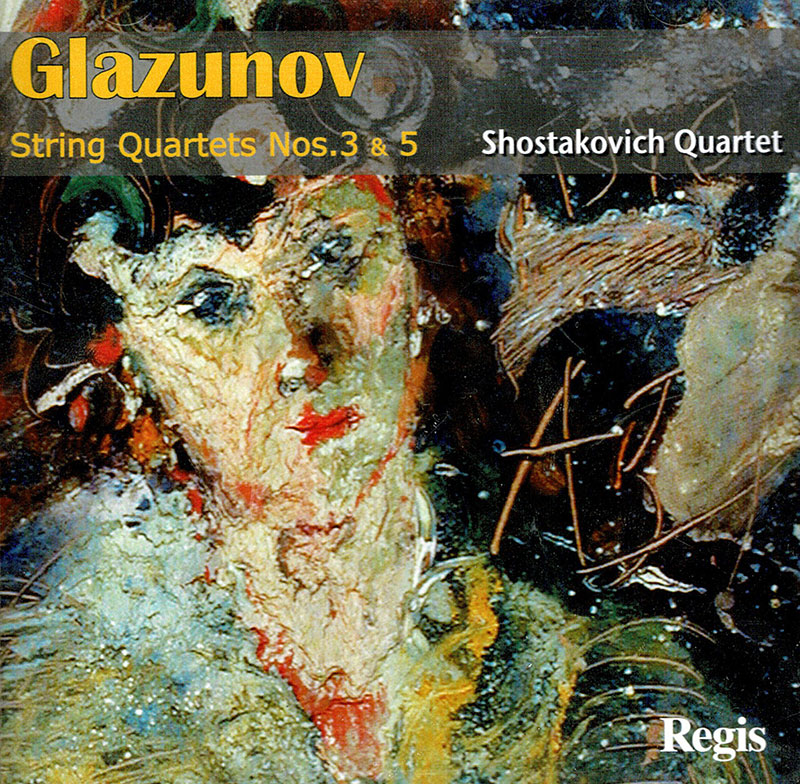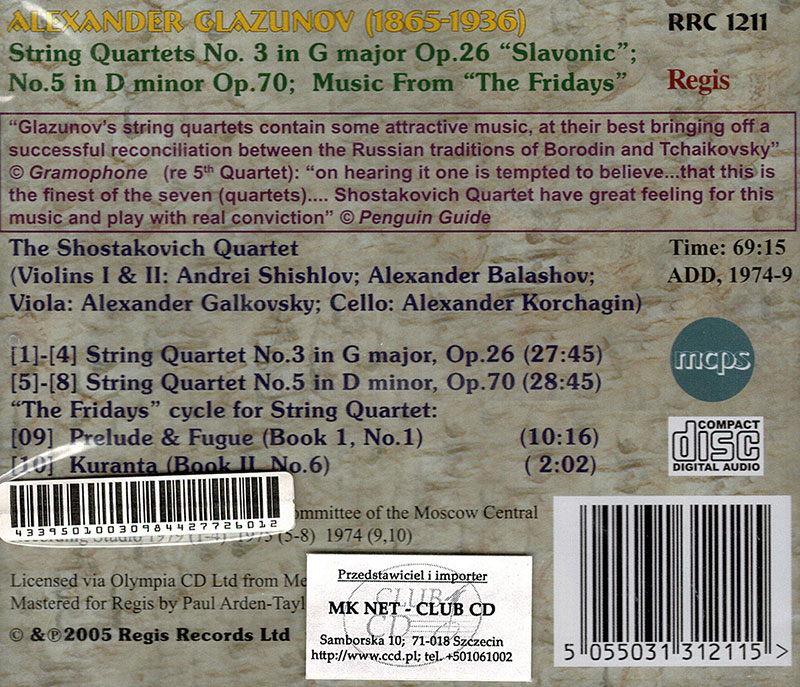Logowanie
Dziś nikt już tak genialnie nie jazzuje!
Bobby Hutcherson, Joe Sample
San Francisco
SHM-CD/SACD - NOWY FORMAT - DŻWIĘK TAK CZYSTY, JAK Z CZASU WIELKIEGO WYBUCHU!
Wayne Shorter, Freddie Hubbard, Herbie Hancock, Ron Carter, Elvin Jones
Speak no evil
UHQCD - dotknij Oryginału - MQA (Master Quality Authenticated)
Chesky! Niezmiennie perfekcyjny
Winylowy niezbędnik
ClearAudio
Double Matrix Professional - Sonic
najbardziej inteligentna i skuteczna pralka do płyt winylowych wszelkiego typu - całkowicie automatyczna
GLAZUNOV, Shostakovich Quartet
String Quartet No. 3, 5 / The Fridays / Prelude and Fugue (book 1 No. 1)

- Alexander GLAZUNOV (1865-1936)
- String Quartet No. 3 in G major op. 26 (1886) [27:45]
- String Quartet No. 5 in D minor op. 70 (1898) [28:45]
- The Fridays (Les Vendredis or Pyatnitsy:
- cycle for string quartet:
- Prelude and Fugue (book 1 No. 1) [10:16];
- Kuranta (book 2 No. 6) [2:02]
- Shostakovich Quartet
- GLAZUNOV
This welcome CD restores to circulation a recording that first appeared on the lamented defunct Olympia label. The self-same analogue recordings appeared on Olympia OCD 525 circa 1992. I am not aware of any other Glazunov quartet cycles; not at bargain price anyway. The Shostakovich Quartet had the field to themselves and a fascinating survey they put together too. The Slavonic Quartet, written at about the same time as the Second Symphony, is a gracious and winsome piece with its first two and final movements similar to the whirling and smiling spirit of parts of Smetana's First Quartet. Despite the title it's not specially Russian although a more nationalistic flavour infuses the Mazurka style third movement. The Shostakovich Quartet play the piece with convincing high-spirited abandon. It fairly flies. The recording balance is up-front and so warm you could play this in the car on a winter's morning to defrost the windscreen. Just as warmly recorded, is the Fifth which in its first movement at times looks towards the Violin Concerto. The trippingly carefree playing of the scherzo keeps faith with the allegretto marking. It parallels the mazurka-allegretto of the Slavonic. The finale is at times bustlingly incessant to the point of oppression although the clear-eyed galloping final pages are a delight. The warmth and resonance of the acoustic are once again very welcome. The two make-weights are from the sequence of pieces written for Mitrofan Belyayev's Friday evening meetings. Both are in romanticised baroque get-up. This CD makes a good start. Perhaps if the reception is as good as the disc deserves we will also see Regis reissues for the other Olympias: OCD 173 quartets 2 and 4; OCD 526 quartets 6 and 7. I commend this inexpensive disc to explorers of the string quartet who already know and love their Smetana and late-Dvořák chamber music. Rob Barnett


































